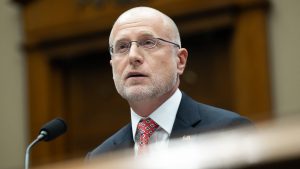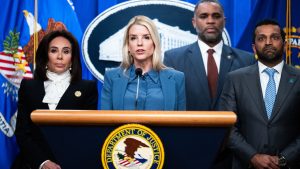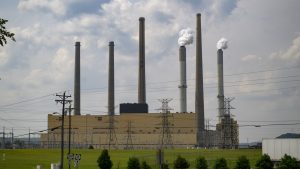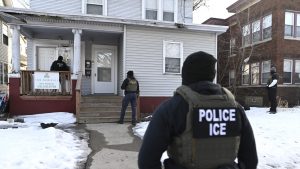Trump administration asking for voter rolls and to inspect equipment: Report
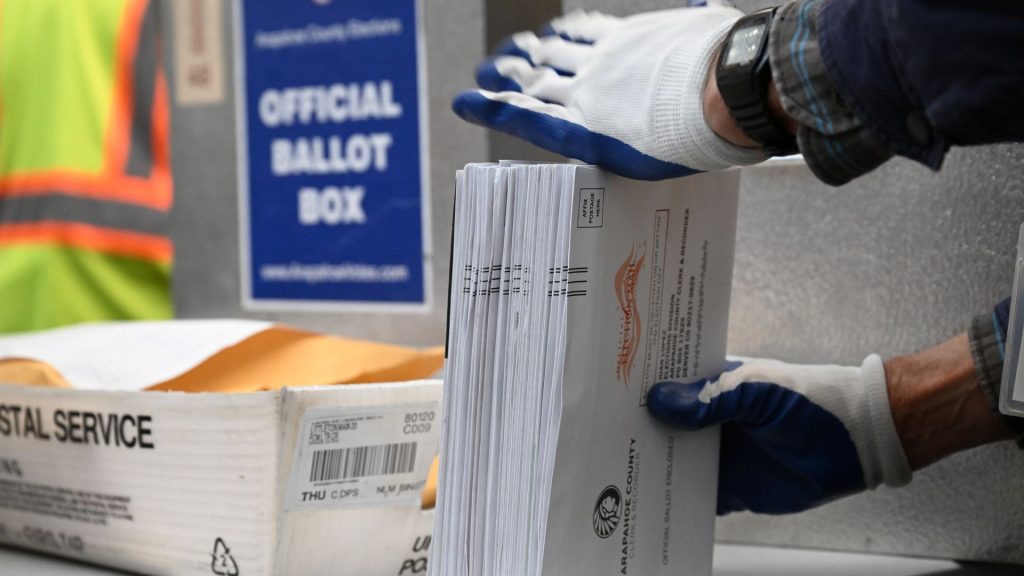
The Trump administration and its associates are allegedly seeking access to voter data and physical inspections of election equipment. The request is raising concerns among local and state election officials over potential interference in the 2026 midterms. The Washington Post first reported the story on Wednesday, July 16.
‘Most unusual activity’ in Colorado
The Post described the outreach as the “most unusual activity” in Colorado, a state President Donald Trump lost in the 2024 election. According to officials, a consultant identified as Jeff Small, who has ties to members of Congress and previously served as Colorado Rep. Lauren Boebert’s chief of staff, contacted multiple election offices.
Small claimed to be working with the Trump administration, and asked whether the federal government or a third party could physically inspect election machines. While federal agencies can offer technical advice, direct inspections of voting equipment are generally prohibited by election law, which limits access to state-certified personnel.
DOJ requests voter data from states
In a separate development, the U.S. Department of Justice has requested copies of voter rolls from at least nine states, with at least two states complying. DOJ attorneys have also requested data to support an executive order by Trump that shifts certain powers over elections from states to the federal government.
Although courts have temporarily blocked key parts of the order – including provisions altering mail-in ballot deadlines and requiring proof of citizenship – one key element remains: data-sharing between states and the federal government. The Post reports that DOJ attorneys have requested meetings with state officials to discuss compliance.
Growing concern over federal overreach
The Trump administration’s unprecedented actions come as the president continues to repeat false claims of the 2020 election being stolen. The latest push is causing concern among Republican and Democratic elections officials, many of whom continue to face threats, harassment and legal matters tied to previous election cycles.
Under the Constitution, the federal government has limited authority over elections. States are primarily responsible for administering them. While Congress can mandate certain access to registration, election officials fear the administration is attempting to compile a national database of sensitive voter data – or implement rules that could suppress eligible voters.
“This is an extraordinary imposition of federal power over states’ election processes that, if it is accepted by the states in this context, will be absolutely used by Democrats in another context,” warned David Becker, executive director of the nonprofit Center for Election Innovation and Research, who worked under Presidents Bill Clinton and George W. Bush.
Consultant raising red flags
A DOJ spokesperson declined to comment on the alleged actions. The White House also refused to confirm whether it is working with Jeff Small. According to the Post, Small hung up on a reporter when pressed for clarification. Colorado GOP election officials say Small contacted them via call and text, claiming he was working with the Trump administration to ensure election integrity and advance the president’s agenda.
“To me, it felt like they were wanting to intervene before 2026,” Justin Grantham, a Republican clerk in Fremont County, told the Post.
Five other GOP clerks expressed similar fears.
“That’s a hard stop for me,” Carly Koppes, a GOP clerk in Weld County, who acknowledges she’s rejected Small’s requests to allow a federal examination. “Nobody gets access to my voting equipment, for security reasons.”
Nationwide briefing draws attention
More than 30 states joined a bipartisan briefing on Monday, July 14, to assess the implications of the administration’s actions. The session included Democratic and Republican attorneys advising election officials on legal safeguards.
The briefing echoed sentiments from Trump’s first term, when a presidential commission also sought extensive voter data. At the time, Mississippi’s Republican secretary of state famously told the commission to “go jump in the Gulf of Mexico.”
The 2020 election still looms
Over the weekend of July 11, in a Truth Social post, Trump again repeated debunked claims, writing that Attorney General Pam Bondi is investigating “The Rigged and Stolen Election of 2020.” His renewed push for voter data comes more than a year before the 2026 midterms, where Democrats hope to take back the House and regain power in several governor’s mansions.
“President Trump and his allies are trying to lay the groundwork to interfere with free and fair elections in 2026,” Samantha Tarazi, CEO of the nonpartisan Voting Rights Lab, told the Post.
DOJ approach varies by state
The Department of Justice’s tactics differ by state. In Colorado, it reportedly requested “all records” related to its election. In Alaska, the department asked why no voters were removed from rolls for lack of mental competence. Elsewhere, it inquired about the process of removing noncitizens and other ineligible voters from rolls.
Grantham said Small also asked whether a third party could examine his voting machines to verify federal compliance. Grantham denied the request, citing state law that prohibits access to voting machines.
Fallout from past election breaches
As Straight Arrow News reported, election officials say their concerns date back to 2020, particularly after former Mesa County clerk Tina Peters was convicted of breaching election security. Peters was sentenced to nine years in prison for allowing unauthorized access to secure systems. Earlier this year, the DOJ surprised observers by assisting Peters with her appeal – a move that deepened suspicion among election administrators.


